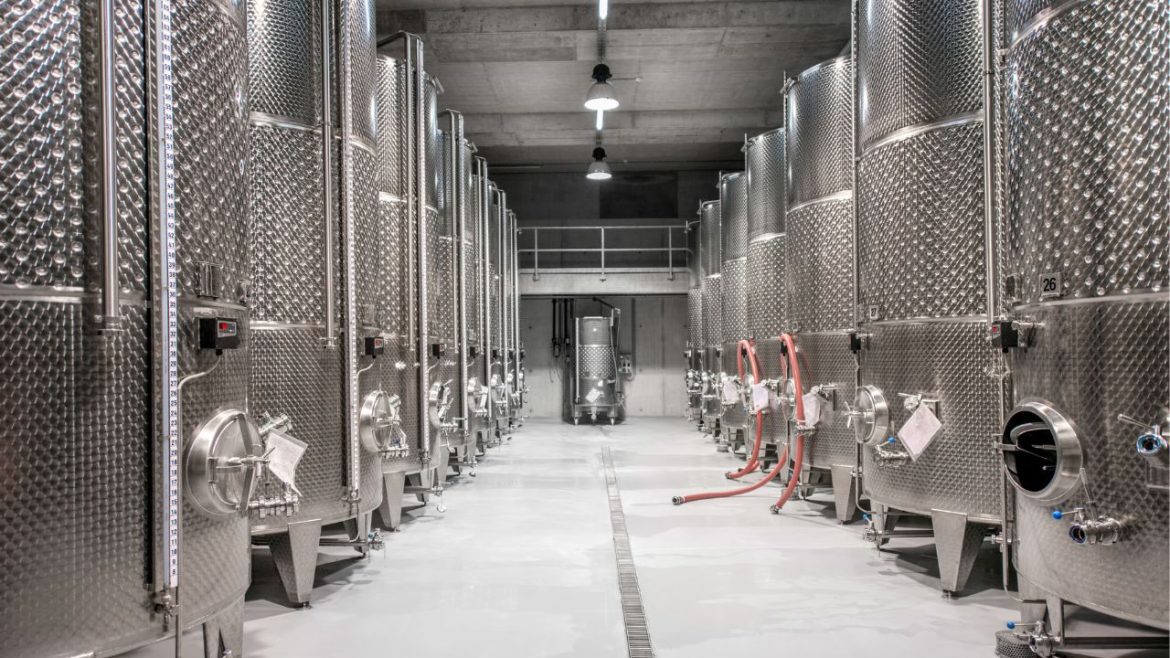To perform an optimized aging process for the wine, winemakers must choose the right kind of stainless steel. The qualities of stainless steel, like durability, hygiene, and control, make them a top choice for wineries for a wine storage tank. However, winemakers must consider multiple factors like size, type, and features to get the best out of this material.
In this article, we’ll cover some factors to look for so you can get the best out of your wine and the aging process.
Things To Keep In Mind When Picking The Ideal Stainless Steel Tank
1- Understanding The Characteristics of Your Wine
The key here is to understand the character of your wine, as there are different kinds available, e.g., white wines, red wines, and rosés. Each one of them has their own requirement for storage to optimize the aging process. Say, for instance, if you’re having a white wine such as Sauvignon Blanc or Riesling, you have to store it keeping the same temperature if you want to have a sweet and fragrant wine. To bring out red wine’s flavor and texture, however, micro-oxygenated tanks are needed. On the flip side, red wines need tanks with micro-oxygenation to bring out their texture and richness of taste.
Winemakers must also consider whether their wine will undergo extended aging or shorter maturation. This will influence the size, material thickness, and additional features of the tank.
2- Tank Size and Shape
When it comes to wine maturing, the tank’s dimensions and form are crucial. While smaller tanks provide more accurate control over smaller batches, like premium or experimental wines, larger tanks are best for high-volume production.
The tank’s design can also affect the wine’s properties. The most popular type, cylindrical tanks, are adaptable and work well with most wines. Conversely, conical tanks are very helpful for fermenting and maturing wines that include sediment because of their shape. This makes it simple to remove lees and enhances clarity and purity.
2- Temperature Control Capabilities
A critical component of the wine aging process is control over temperature, as it directly affects the stability and development of flavor. Seek for tanks with cutting-edge temperature management features, such as built-in cooling jackets or exterior insulation. These characteristics enable winemakers to keep fermentation and aging temperatures constant, avoiding unintended variations that might lower wine quality.
3- Oxygen Management Features
For wines that need less oxidation, including whites and sparkling wines, stainless steel tanks naturally reduce oxygen exposure. However, take into account containers with movable valves or micro-oxygenation systems for red wines that could profit from regulated oxygen exposure. Because of these characteristics, oxygen may enter the wine precisely, allowing it to develop its complexity without being overexposed.
4- Durability and Maintenance
Two qualities – strength and durability – are central to stainless steel, but not all types have the same properties. Some are better than others. Tanks built by using high-grade stainless steel material, such as 304 or 316, are better at keeping off corrosion and are also more suitable for holding acidic wines. Besides this, choosing ones with polished and smooth surfaces makes it easier to clean and reduces the chances of contamination.
5- Customization Options
A lot of contemporary stainless steel tanks have characteristics that may be changed to suit the demands of the winemaker. Sight glasses, racking arms, sample valves, and even digital monitoring systems are examples of these. By ensuring that the tank meets your unique production objectives, customization improves control and efficiency over the tank’s aging process.
Conclusion
When selecting the best stainless steel tank for the aging process, the specific needs of your wine, the size and form of the tank, and extra features like temperature control and oxygen management must all be carefully considered. A carefully selected tank may greatly improve your wine’s quality, guaranteeing consistency, durability, and superb flavor. Wineries may improve their production process and produce wines that satisfy the highest standards of quality by making the appropriate equipment investments.
